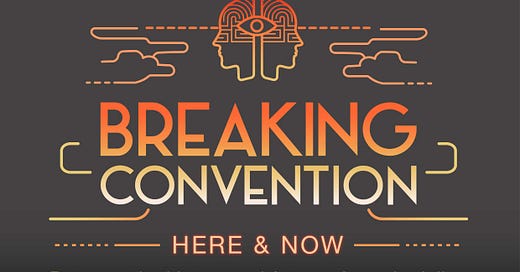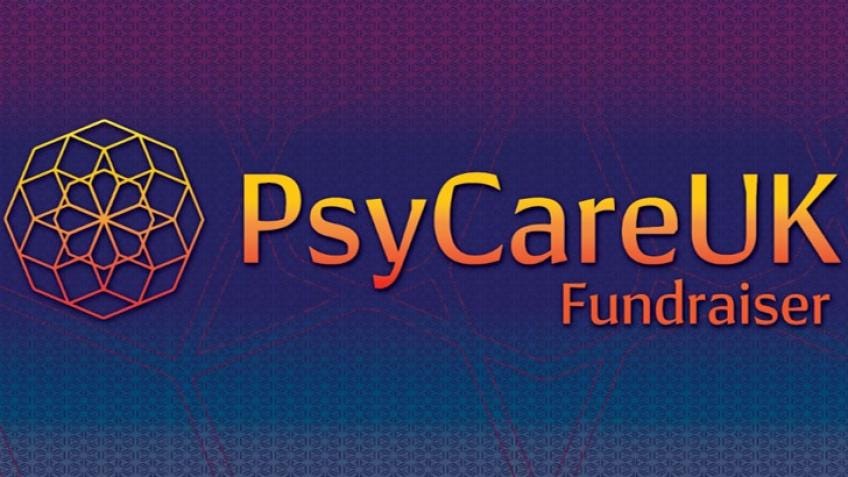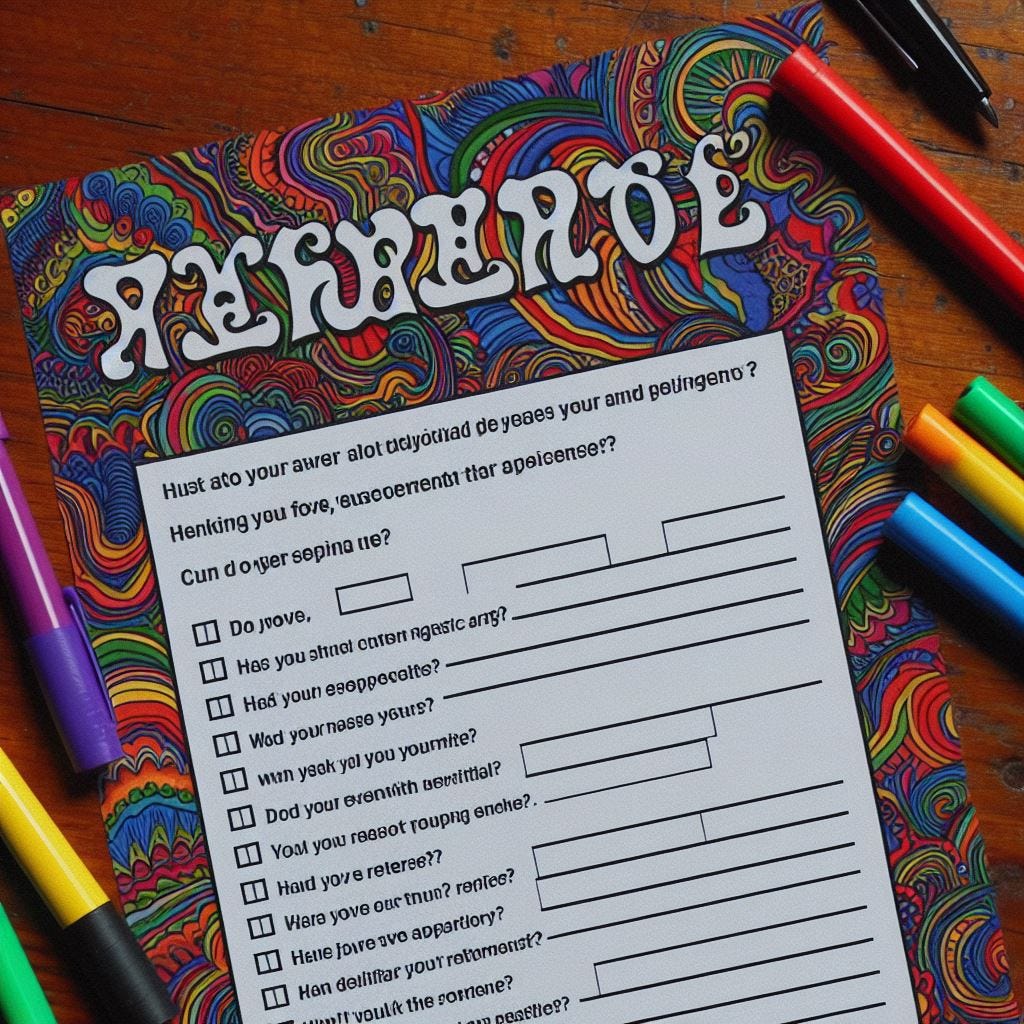Tickets now available for BC April 2024!
Here & Now: Between the History and Future of Psychedelics
Hello Breakero,
Tickets are now on sale for our 2024 event. Get them while you can!
This one-day event will explore the roots of psychedelia, highlighting the importance of indigenous cosmologies, the influence of thinkers like Terence McKenna, the impact of rave culture, and valuable lessons from the underground. We will (then) move into the present day, focusing on the future of psychedelic education, the latest clinical research, and what the mainstreaming of psychedelics might mean for society at this time in history.
Expect the stimulating BC mix of academia, enthusiasts, scientists, and historians, with lively debates and storytelling. We are especially happy to be holding our event at Conway Hall, an important psychogeographical meeting place of the counterculture in London for many decades. Located on Red Lion Square in the heart of Holborn there are plenty of nearby eateries, an outdoor garden space, and good transport links. In the evening there will be an afterparty, venue tbc.
Keep an eye on our Ticket Tailor page for the latest updates on speakers and all other information, as well as here and our social media (links below).
With several academic courses in Psychedelic Studies and related subjects beginning in this New Year, we wish all students well as they enter this exciting discipline. We can’t wait to host you at future conferences!
Nikki
On behalf of all at Breaking Convention
PsyCare Fundraiser
Breaking Convention has joined the long list of those who have donated prizes to the PsyCare UK fundraiser! Huge thanks to all who have contributed so far. Goo to their Crowdfunder page to see what other wonderful things are on offer—including some really fascinating online talks—and make yourself feel good whilst helping a most worthwhile organisation.
PsyCare UK is a registered charity that provides welfare and harm reduction services at music festivals and events throughout the UK and internationally, and has been operating for over 10 years. They provide a compassionate and sensitive welfare service that meets the needs of all festival goers, whilst specialising in managing psychedelic crises.
https://www.crowdfunder.co.uk/p/psycare-uk-fundraiser-2023
Psychedelics: Magic, Monopolies, and Metaphysical Mayhem
A date for your diaries; Monday 29th January 2024
An evening of talks, art and poetry hosted by the Exeter Psychedelic Research Group. Featuring Peter Sjosdedt-Hughes, Celia Morgan, Andy Letcher, Christine Hauskeller, Mark Juhan et al. 7–9pm at the lovely Exeter Phoenix venue in the city centre. Tickets available soon!
OPEN Foundation Interdisciplinary Conference on Psychedelic Research: 6–8 June 2024
The 6th Edition of Europe's premier academic event dedicated to advancing psychedelic research and therapies is set to take place from June 6 to 8, 2024, at the Philharmonie in the beautiful city of Haarlem. The conference will showcase cutting-edge studies and foster discussions on the therapeutic potential, cultural implications, and philosophical aspects of psychedelics.
The Call for Papers is open, and Early Bird tickets are on sale now!
icpr-conference.com
Philosophical Psychology journal special Psychedelic Treatments in Psychiatry issue
A reminder that the deadline for submissions to the special Psychedelic Treatments in Psychiatry issue of the journal Philosophical Psychology is 29 February 2024.
Psychedelic drugs have been used for centuries all around the world, sometimes purely recreationally and other times as means to mystical experiences that lead to insight and spirituality. During the 1950s and 60s there was some experimentation with such drugs in psychiatric treatments but it died out quickly as a result of different social forces. In the past 20 years or so, however, there has been renewed interest in psychedelic therapy in psychiatry, that is, in the treatment of mental disorders through the controlled administration of certain psychedelic substances. The initial results seem promising but they raise significant questions, many of them philosophical. These include questions in the philosophy of mind relating to the nature of consciousness and the self, ethical questions about the administration of such drugs, epistemological questions about the status of psychedelic states and the possible epistemological risks that their administration may pose, as well as other questions about the mechanisms through which psychedelic therapies work and the ontological commitments that they lead us to.
The purpose of this special issue is to draw attention to this new area of philosophical interest and to contribute to the philosophical exploration of these and other questions relating to this new form of therapy.
https://think.taylorandfrancis.com/special_issues/psychedelic-treatments-psychiatry/
Survey: From the Clinical and Affective Neuroscience Laboratory at Brown
This month’s featured survey seeks to examine the adverse affects of the classic psychedelics, and asks for suggestions of how these might be mitigated.
Classic psychedelics, such as LSD, psilocybin, ayahuasca, DMT, mescaline, peyote, and related compounds, are experiencing a renaissance of public and clinical attention. Classic psychedelics are being used for a wide range of applications in spiritual/religious, wellness and clinical settings. Research and media coverage has focused almost exclusively on the benefits of psychedelic use. However, there is very little research about psychedelic-related adverse effects, what they entail, how long they last, what factors make them more or less severe, and what is the best way to help psychedelic users who have them.
This study hopes to answer the following questions: What kinds of lasting challenges and adverse effects can occur as a result of classic psychedelic use? Are there specific psychedelics, approaches or contexts that tend to cause more problems than others? What predicts whether a challenging psychedelic experience is therapeutic or destabilizing? If someone experiences challenging experiences from psychedelics, what should they do? What types of support, remedies or therapies are most or least helpful?
https://sites.brown.edu/britton/activeresearch/prcae/









